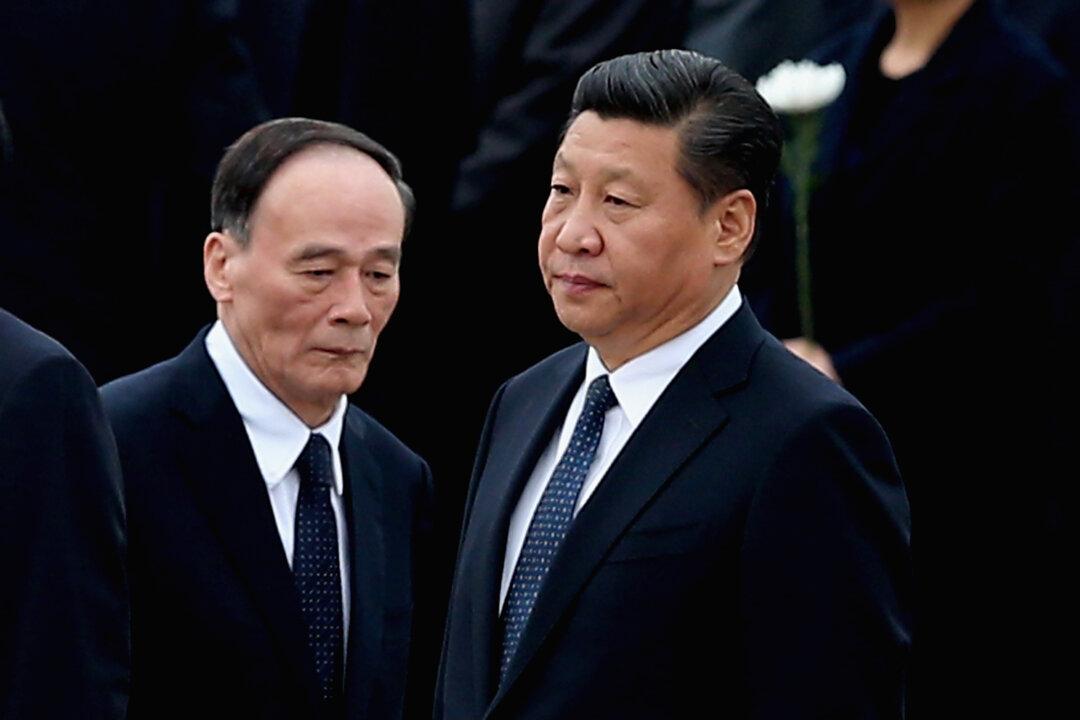News Analysis
When the leadership of the Chinese Communist Party lines up for official events with their uniformly dyed black hair, dark suits, and maroon ties, they give the impression of monolithic stability.
The last few years, however, and particularly the last one, have seen any notion of an unruffled elite be blown apart by Chinese leader Xi Jinping.
Xi has accused disgraced top officials of being political conspirators. His anti-corruption inspectors have criticized the senior leadership of key government bodies for lacking political awareness. And the anti-corruption agency declared in a recent circular aimed at high-ranking cadres that “all is actually not well.”
The official revelations of a fractious elite indicate that Xi Jinping’s anti-corruption campaign has all along been a tool for ousting a rival faction led by former Communist Party head Jiang Zemin, and for forcing the Party to conform to new disciplinary norms established by Xi himself. The Jiang faction was earlier suspected of masterminding a coup to remove Xi from office.
Given that the entire thrust of Xi’s anti-corruption campaign has been to compel the political loyalty of Chinese officialdom, if the campaign continues, crucial political changes may take place.
Though Xi is the leader in name, he rose to the job in a system that had been controlled by a former leader—the godfather-type figure Jiang Zemin—for over two decades. Jiang came to power after the 1989 Tiananmen Square massacre, and in the years that followed, he and his faction gained a stranglehold over the country, including control of the military, the security apparatus, the propaganda system, and the economy.
As Chinese officials continue switching their allegiance to Xi Jinping, the moment is approaching when he will become the unquestioned leader, having the backing of the great majority of cadres. Xi will consolidate this status when he takes down Jiang.
With Jiang and the old political forces out of the way, Xi can contemplate new and different political futures for China.
Ending the Jiang Era
Until recently, the influence of Jiang on elite politics was virtually unopposed following the death of former paramount leader Deng Xiaoping in 1997. Hu Jintao, Deng’s designated successor of Jiang, was politically shackled by the “collective leadership” of Jiang’s allies in the Politburo Standing Committee, the regime’s top decision-making body.
Many Chinese officials became Jiang’s supporters because he was willing to turn a blind eye to their corruption. Also, because Jiang offered them wealth and power, Chinese officials became active participants in Jiang’s pet project, the persecution of the traditional Chinese spiritual discipline Falun Gong.
Xi Jinping was in some ways forced to deal with Jiang Zemin’s gang when he took office. First, Xi was fully aware of the fate of Hu Jintao, and wanted to be his own man. Also, Jiang’s key allies were planning to overthrow Xi—a plot revealed to U.S. officials in China by a former top provincial police official in his failed defection attempt in 2012.
Under the direction of Wang Qishan, the anti-corruption chief and Xi’s primary ally, the anti-corruption agency has investigated over a million officials of all ranks over the past four years, according to official reports.
More than 200 of those purged are elite cadres from government bodies, the military, and state-owned enterprises. Very powerful Jiang allies like the former security czar Zhou Yongkang, and retired military vice chairs Guo Boxiong and Xu Caihou, were probed, prosecuted, and handed life prison sentences.





